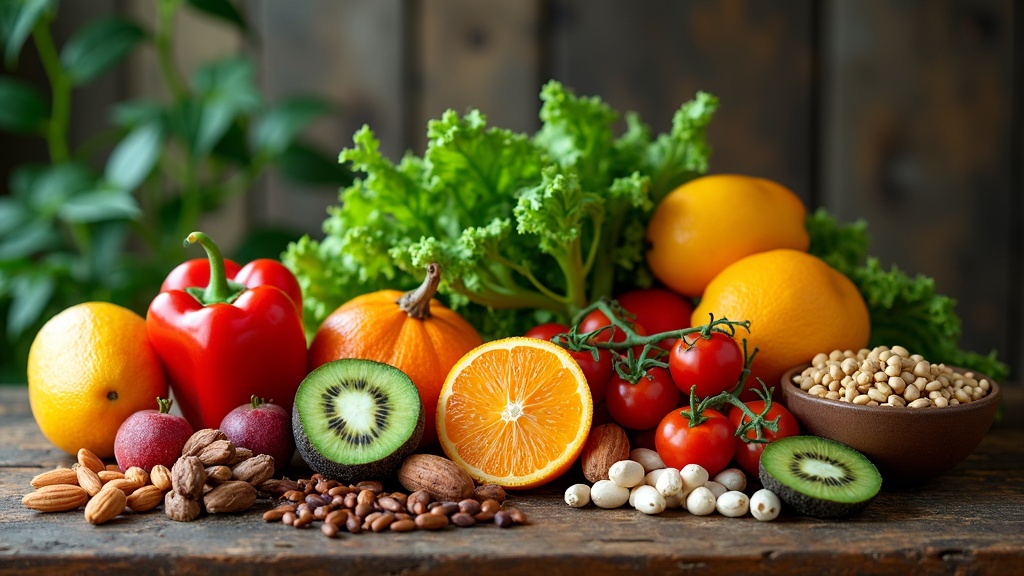Mental health is shaped by all kinds of factors, including personal history, your social environment, and yes, the choices you make about what to eat each day.
Lately, there’s been growing interest in how your diet might impact your emotional and mental well-being.
For folks curious about what a plantbased approach might do for their mood or mindset, it’s a pretty interesting area to check out.
I’ve personally found that switching up my meals toward more whole, plant foods brings some serious benefits—not just for my energy levels, but for my emotional balance, too.
Here’s a closer look at how a plantbased diet might support mental wellness, plus some tips if you’re thinking about making the change.

Why Mental Health and Diet Are Connected
Your brain and gut are linked much more than most realize.
There’s a whole “gutbrain axis” at play, where what you put into your digestive system sends ripple effects all the way up to your mood, stress response, and even memory.
Plantbased diets are packed with fiber, antioxidants, vitamins, and minerals that keep your gut happy.
And a happy gut keeps your mind steady and calm.
When I started eating more plant foods, I noticed fewer energy crashes and a steadier mood each day.
Scientific studies have started connecting diets high in fruits, veggies, nuts, and whole grains to a lower risk for depression and anxiety symptoms (NCBI: Nutritional Psychiatry).
Beans, leafy greens, berries, and seeds are loaded with nutrients that support neurotransmitter activity.
These are the chemical messengers that help keep your mind and brain functioning smoothly.
Building Blocks of a PlantBased Diet That Boost Mental Health
The key ingredients in a plantfocused diet can spark seriously positive effects on your mood and energy.
Here’s some of what I’ve come to count on by eating more whole, plant foods:
- Fiber: Keeps your gut bacteria balanced and happy, which has been shown to affect mood and may lower your risk of depression.
- Antioxidants: Fight off cell damage linked to stress and mental fatigue. Berries, beans, leafy greens, and spices like turmeric are loaded with them.
- Omega3s: These fats aren’t just in fish—chia seeds, flaxseeds, and walnuts bring plantbased omega3s that help keep your brain sharp and dialed in.
- B Vitamins: Folate and B12 help create mood-regulating neurotransmitters. Beans, lentils, and leafy greens bring lots of folate. For anyone skipping animal foods, a B12 supplement is worth tracking down.
- Magnesium: This mineral can help ease anxiety and improve sleep. Find it in nuts, seeds, whole grains, and even dark chocolate.
First Steps for Switching to a PlantBased Diet for Mental Well-Being
Switching how you eat doesn’t have to mean an instant 180.
Taking it step-by-step is much more doable and way less overwhelming.
Here’s how I recommend making the switch:
- Add, Don’t Just Subtract: Bring more veggies, fruit, beans, and whole grains onto your plate before cutting anything out. When you stumble upon foods you love, there’s no need to feel deprived.
- Mix Up Your Plate: Aim for variety—different colored fruits and veggies, assorted grains, and all types of beans and lentils. Every food brings its own unique mix of nutrients.
- Keep Meals Satisfying: Proteinrich plant foods like beans, tofu, and tempeh, plus healthy fats such as avocado and nuts, will keep you full and stave off those blood sugar dips that can mess with your mood.
Building in these habits one at a time helps your brain and body adjust.
You might soon feel lighter, more clearheaded, and more mentally steady as your plates fill up with whole, plantbased foods.
Things To Watch Out For With a PlantBased Diet
No diet is perfect, and plantbased eating is no exception.
Staying aware of a few common challenges helps you keep feeling your best—both mentally and physically.
- B12 Levels: This vitamin is mainly found in animal foods, so supplementing or using foods fortified with B12 is a smart long-term move for your brain’s well-being.
- Iron and Zinc: Plant sources can be less easy to absorb. Lean on lentils, beans, pumpkin seeds, quinoa, and leafy greens, and pair them with vitamin C-rich options (like peppers or citrus) to help your body access the minerals.
- Protein Variety: Plants do have protein, but for all your amino acid needs it’s important to mix things up. Combining legumes, nuts, whole grains, and seeds will cover you.
- Feeling Overwhelmed: Changing your habits can get stressful. Be gentle with yourself and aim for small shifts—there’s no race to the finish line.
B12: Why It Matters
B12 keeps your nervous system on track.
Deficiency can sneak up if you’re not mindful with supplements or fortified foods.
I keep a methylcobalamin B12 spray on my kitchen counter so my daily dose is never out of sight.
Iron and Energy
Low iron can leave you tired and mentally scattered.
Cooking with cast iron pans, using blackstrap molasses, and pairing beans with tomatoes or bell peppers have kept my energy and outlook solid, even when life gets hectic.
Protein Power
Mixing up beans, tofu, oats, and seeds every week covers all the building blocks your mind and body need.
I love making big batches of lentil stew or chickpea salad so that I always have proteinrich options in the fridge, ready to go.
Extra Tips for Boosting Mental Health With PlantBased Eating
Giving your mental health an extra boost with your diet isn’t only about what’s on the plate.
A few other habits can make a genuine difference:
Cook at Home More Often:
Homecooked meals mean you get to know what’s in your food, and kitchen time can be a creative stressbuster.
Keep Up with Friends and Family:
Sharing meals with others can ease loneliness and support emotional wellness.
I enjoy swapping recipes or hosting potluck dinners where everyone brings a favorite plantbased dish.
Stay Hydrated:
Sometimes, dips in energy or mood come from being slightly dehydrated.
Keep sipping water and add hydrating foods like cucumber, oranges, and berries to your routine for a quick boost.
Listen to Your Body:
We’re all wired a little differently.
If something feels off—persistent tiredness, brain fog, or mood swings—it’s always wise to ask a healthcare provider or dietitian, especially when you’re new to plantbased eating.
Bright Spots: Real-Life Outcomes with PlantBased Diets
It’s not just about research—there are real stories from folks everywhere who feel lighter and more centered after moving to a plantbased diet.
I’ve talked with friends who notice sharper focus, brighter moods, and even softer edges to their anxiety.
While everyone’s experience will be unique, there’s plenty of research tying diets rich in plant foods to lower depression rates, less perceived stress, and faster thinking in daily life (Psychology Today: Plant-Based Diets and Mental Health).
- Focus and Clarity: Bringing lunches full of whole grains and leafy greens has left me clearheaded in those long afternoon meetings.
- Better Sleep: Diets loaded with magnesium and less processed food have helped me both fall asleep quickly and stay asleep through the night.
- Less Stress: I’m able to bounce back from stress with more ease, and find patience on the tough days more easily.
Frequently Asked Questions
People often like to ask practical questions before making food changes. Here are some of the most common ones I hear:
Question: Is a plantbased diet good for people with anxiety or mild depression?
Answer:
Some research suggests that diets high in antioxidants and fiber may help ease symptoms over time.
Every person is different; it’s always smart to talk things over with a doctor if you have ongoing concerns.
Question: Will cutting out animal foods make me tired or moody?
Answer:
You’ll feel great as long as you make sure to include enough iron, B12, protein, and healthy fats.
These are easy to get with a little planning—fortified foods and supplements work wonders here.
Question: What’s one easy swap to start with?
Answer:
Switch your afternoon snack from chips or candy to a mix of nuts and fruit.
You’ll get fiber, a touch of natural sweetness, protein, and healthy fats—all of which help keep up steady energy and mood.
Moving Forward with PlantBased Eating
Supporting your mental health through food isn’t about chasing perfection.
It’s all about making thoughtful, steady choices that make sense for your lifestyle.
By adding more whole, plantbased meals, you’re doing more than just helping your physical health—you’re giving your mind a boost, making it easier to roll with life’s challenges and find more balance.
Every positive step is a win worth celebrating, no matter how small.
